 Gonorrhea is a sexually transmitted disease caused by a microorganism called Neisseria gonorrhoeae otherwise known as gonococcus. Individuals become infected when their genitals come in contact with penile or vaginal discharge during intercourse or other sexual activities. The disease affects about 0.6% of men and 0.8% of women globally. Annually, between 33 to 106 million new cases of gonorrhea occur out of the estimated 498 million new cases of curable sexually transmitted infections recorded worldwide. If left untreated, the disease can lead to major health complications. Gonorrhea increases your risk of these infections, particularly chlamydia, which most times accompanies a gonorrhea infection. Testing for HIV also is recommended for anyone diagnosed with a sexually transmitted infection. Depending on your risk factors, tests for additional sexually transmitted infections could be beneficial as well.
Gonorrhea is a sexually transmitted disease caused by a microorganism called Neisseria gonorrhoeae otherwise known as gonococcus. Individuals become infected when their genitals come in contact with penile or vaginal discharge during intercourse or other sexual activities. The disease affects about 0.6% of men and 0.8% of women globally. Annually, between 33 to 106 million new cases of gonorrhea occur out of the estimated 498 million new cases of curable sexually transmitted infections recorded worldwide. If left untreated, the disease can lead to major health complications. Gonorrhea increases your risk of these infections, particularly chlamydia, which most times accompanies a gonorrhea infection. Testing for HIV also is recommended for anyone diagnosed with a sexually transmitted infection. Depending on your risk factors, tests for additional sexually transmitted infections could be beneficial as well.
Gonorrhea Shot
Due to the emergence of drug-resistant strains of Neisseria gonorrhoeae, the Centers for Disease Control and Prevention recommends that uncomplicated gonorrhea be treated only with the antibiotic ceftriaxone shots. As such mild Gonorrhea infection and others confined to the female cervix, are often treated with a single shot of ceftriaxone along with a second oral antibiotic such as azithromycin (Zithromax, Zmax) or doxycycline (Monodox, Vibramycin, others) — two antibiotics that are taken orally. Women with severe allergic reactions to penicillins can also be treated for Gonorrhea using alternative antibiotics such as azithromycin.
How Long After the Shot Does Gonorrhea go Away?
To avoid transmission of the disease to your partner if he or she don’t already have the infection, you must avoid all sexual contact while you are being treated for Gonorrhea and if your treatment is a single dose of medicine like Gonorrhea shot, you should not have any sexual contact for 7 days after the treatment has been completed. It takes about that time to get rid of gonorrhea after being treated. It is important to note that having a gonorrhea infection that was cured does not protect you from getting infected again.
Gonorrhea Shot Side Effects
While Ceftriaxone injection is an effective treatment for Gonorrhea, like any medication, it may cause certain side effects. It’s important to note that not everyone will experience these side effects, and some individuals may experience side effects that are not listed here. Always consult with your healthcare provider if you have concerns about the side effects of any medication, including Gonorrhea shots with Ceftriaxone.
Common side effects that may occur include:
- Diarrhea:
- This is a common side effect of many antibiotics, including Ceftriaxone. It is usually mild, but if it persists or becomes severe, it’s important to inform your healthcare provider.
- Injection Site Reactions:
- Pain, tenderness, hardness, or warmth at the site where the injection was given are common reactions. These symptoms typically subside on their own, but if they persist or worsen, contact your doctor.
- Systemic Symptoms:
- Pale skin, weakness, or shortness of breath during exercise may occur. If these symptoms are severe or persistent, it’s important to inform your healthcare provider.
While rare, there are more serious side effects that require immediate medical attention. These include:
- Gastrointestinal Issues:
- Bloody or watery stools, stomach cramps, or fever during or after treatment could indicate a more serious condition and should be reported to your doctor promptly.
- Abdominal Symptoms:
- Stomach tenderness, pain, or bloating could be a sign of a severe reaction and should be addressed urgently.
- Skin Reactions:
- Rash, peeling, blistering, or shedding of the skin should be reported immediately. These can be signs of an allergic reaction.
- Digestive System Issues:
- Nausea, vomiting, severe pain in the side and back below the ribs, heartburn, and difficulty swallowing or breathing should be promptly addressed.
- Allergic Reactions:
- Swelling of the throat or tongue, seizures, and chest pain are symptoms of a severe allergic reaction and require immediate medical attention.
- Urinary Symptoms:
- Painful urination, decreased urination, urinating more often than usual, and changes in urine color or odor should be reported.
- Edema:
- Swelling in the legs and feet could be a sign of a serious reaction and should be discussed with your healthcare provider.
- Infection Signs:
- A return of fever, sore throat, chills, or other signs of infection may indicate that the treatment was not fully effective.
It’s essential to communicate openly with your healthcare provider about any side effects or concerns you may have during the course of treatment. They can provide guidance on managing side effects and make any necessary adjustments to your treatment plan.
Also Read: Chlamydia Shot

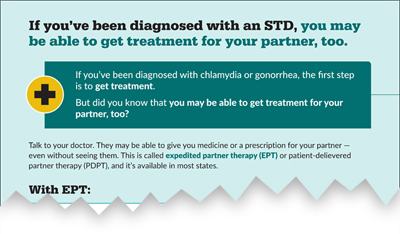
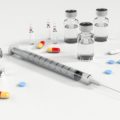
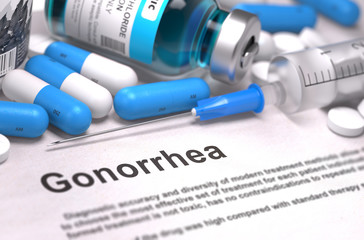
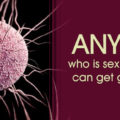
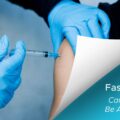
2 Comments